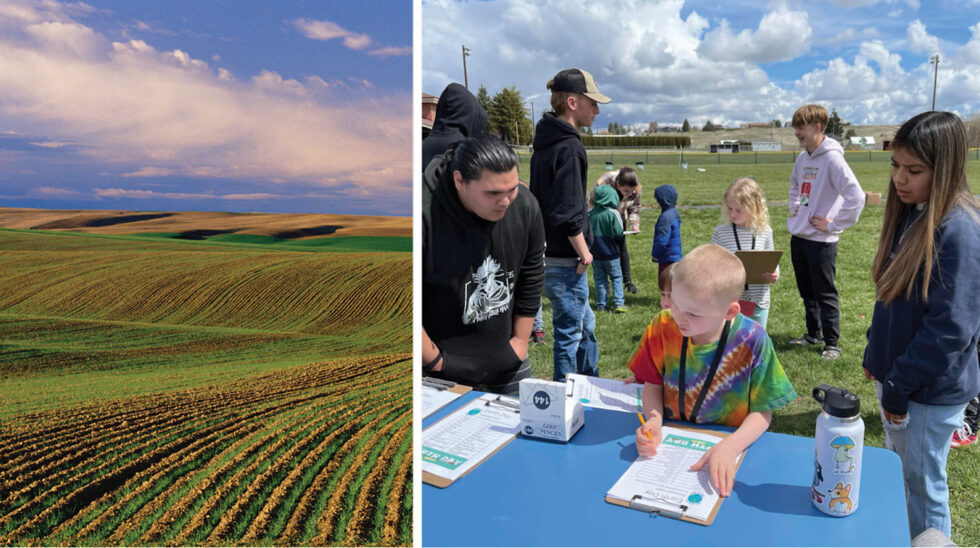Originally published on the ClimeTime website on February 24, 2023
When Celia Cummings started teaching Waterville High School’s first environmental science class, she discovered that many of her students came from families that doubt the science of climate change. Celia was enrolled in a climate justice focused professional development program with EarthGen. What she learned helped her feel confident teaching climate science in her classroom, where some students questioned whether climate change was real.
Cummings is a fairly new teacher in this school of about 100 students in the agricultural town of Waterville on the plateau above the Wenatchee Valley. She wanted to get as much teacher training as possible to supplement her background in science with strategies to help her bring climate science into her classroom. She signed up for EarthGen’s Climate Justice League hoping to find resources to help her teach the school’s new environmental science course. “Anything helping me teach a new course is useful,” she said.

Celia learned about the localized impacts of climate change and how young people in other Eastern Washington communities are making a difference in the fight against climate change. For her, the most helpful unit focused on guiding productive conversations when people hold differing beliefs. She learned how to create a respectful, safe environment in her classroom. Celia taught her students how to really listen to both sides and understand others’ perspectives. Her students talked about what can make any conversation difficult; they role-played in class; and then they used what they learned to hold a climate conversation with an adult in their life. Afterwards they shared how it went.
Among the successful conversations, Celia noted one young man whose family likes to hunt. He used that common ground as an entry point to talk about how climate change affects wildlife populations and leads to more wildfires, which further affect wildlife. Other students have parents who work in orchards in the Wenatchee Valley; they know firsthand about the impacts of heatwaves and wildfire smoke. Through these conversations, Celia’s students were able to see how their own experiences were consistent with the climate science data collected in their region.
When Celia discovered the climate doubt in her community, she was afraid that lessons on climate change would anger parents or turn classroom conversations political. “Before taking this class, I don’t think I would have pushed for us to continue that conversation,” she says. Thanks to EarthGen’s Climate Justice League, Celia gained the confidence to dig deeper into the science and data with her students. She was able to do more than effectively teach her students the science of climate change. She gained resources to help them evaluate the data for themselves, and even to take the climate conversation out of the classroom and into the community in a productive way.